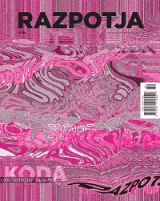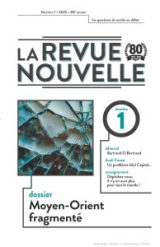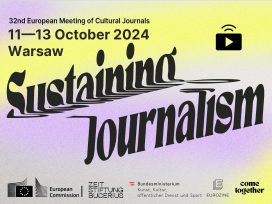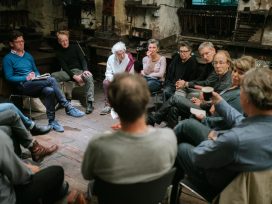The Second World War no longer serves as a history of the western European present. The current era is marked by a different set of problems, not least the fading appeal of the model of democracy installed after 1945.
Articles
Two opposing interpretations of 1945 form the ideological core of today’s confrontation between Russia and the states of central and eastern Europe. The one is anti-fascist, the other anti-totalitarian; both are reactions to the collapse of the Cold War order.
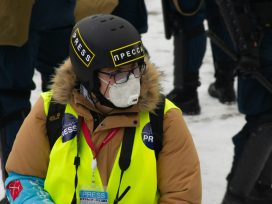
Journalism may be touted as a heroic pursuit, but the working conditions undermine young talent and career prospects are few and far between. Journalists talk panic attacks in the editorial rooms, early career experiences and the transformation of their profession.
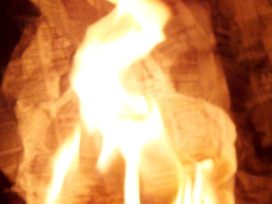
Polish journalists, micromanaged by the authorities, tread a fine line between boondoggling and ritually sensationalizing political debate. The following fragment from ‘Bullshit Journalism: Why is it so bad to work in the Polish media?’ gives voice to professionals under duress.
Recommended topics
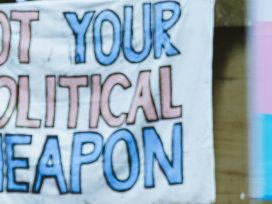
Transgender identities are commonly misunderstood. Authorities such as the UK Supreme Court see fit to erase trans people to satisfy retrograde opinions on gender diversity. But looking back at the life of American activist Lou Sullivan, profiled by Vox Feminae, is a timely reminder that being born a ‘biological woman’ isn’t a fixed definition.
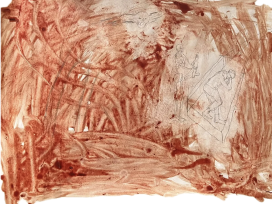
Artist Marharyta Polovinko’s creativity persisted in a tormented form through her experiences as a soldier on the Ukrainian frontline. The words of a recently called-up fellow creative and young family man provide a stark reminder that the Ukrainian military is buying Europeans time.
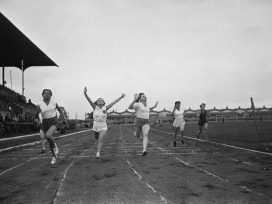
Women who take up running face all manner of challenges, from sexual harassment to overcoming body self-consciousness. Croatian journal Vox Feminae reflects on the sport’s development in Yugoslavia and its role today, including benefits for body, mind and connecting with the environment.

“Come Together” is founded on the principles of partnership and peer-to-peer learning among individuals within community media organizations situated in six different countries. Instead of generating entirely new knowledge, the initiative aims to unearth and leverage the existing wisdom residing within these organizations to foster innovative approaches.
Eurozine review
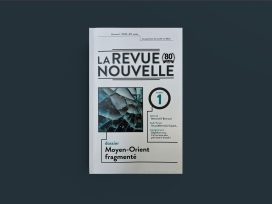
Fragmented Middle East
La Revue nouvelle 1/2025
In La Revue nouvelle: Why peace in Lebanon requires understanding Hezbollah; which way the Iranian regime will turn; and whether more international law means greater lawfulness.

Hard-bodied heroes
rekto:verso 105 (2025)
In rekto:verso: what the body of the action hero says about relations of power; why yoga’s discourse of accessibility rings hollow; and whether fitness practitioners should really be reading Mishima.
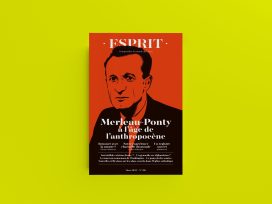
To have a body
Esprit 3/2025
Esprit revisits the philosophy of Maurice Merleau-Ponty: including Guillaume Le Blanc on ‘incarnation’; Corine Pelluchon on eco-phenomenology; and Judith Revel on Merleau-Ponty, ‘the eternal runner-up’.
Focal points
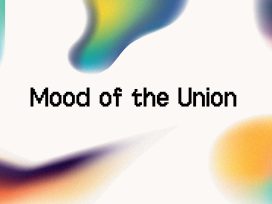
The European Parliament elections on 9 June are a referendum on EU policy since 2019. Will voters give Europe the green light for further progress, or pull the brakes? A new Eurozine series measures the political atmosphere in the EU and its neighbourhoods at this crucial moment.

Food and water systems under pressure: as the end of abundance becomes an everyday experience in Europe, we are thinking more closely about how our food reaches the table.

Post-revolutionary Ukrainian society displays a unique mix of hope, enthusiasm, social creativity, collective trauma of war, radicalism and disillusionment. With the Maidan becoming history, the focal point ‘Ukraine in European Dialogue’ explores the new challenges facing the young democracy, its place in Europe, and the lessons it might offer for the future of the European project.

Some observers, recalling the disasters of the 1920s and 30s, are suggesting that an anti-democratic counterrevolution on a global scale has begun. But is the writing really on the wall? Or does declinism prevent us from recognizing moments of democratic renewal?


